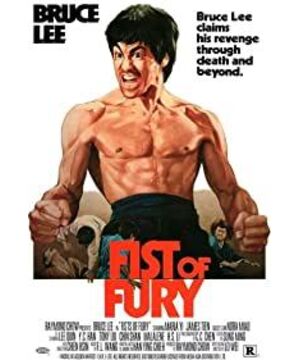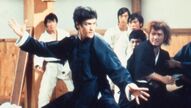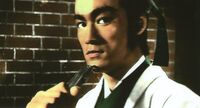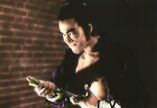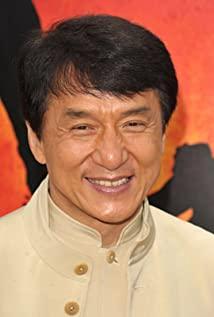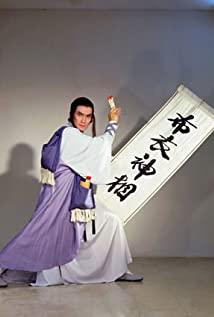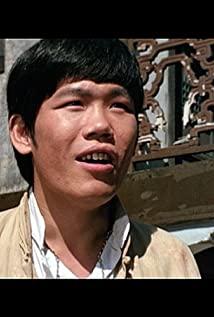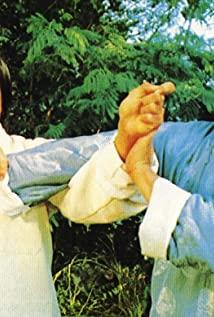I finished watching "Jing Wu Men" and "Big Brother Tangshan" in one afternoon. The two films are tight in time, with the same production crew, and the themes complement each other to form the two main issues of the Hong Kong Left: nation and class. At first glance, these two movies seem to be ordinary martial arts movies, and the plot is like a running account. On closer inspection, we can see that the film's narrative on the main theme is very complete.
"Big Brother Tangshan" tells the romanticized class struggle. The beginning of the film illustrates the class differentiation with a sharp contrast of wealth: Bruce Lee’s hometown has been plagued with years of disasters, and he has to come to Thailand to make a living. His employer lives in a deep house like a compound in a country like Thailand, which is not even a developed country. As a squire, he monopolized all social power. Many details in the film explain in detail the great social power of capitalists. They not only have their own underworld organizations as thugs to suppress workers in a third world country with weak political power like Thailand, and their power extends to the officialdom (film The detail that the manager said that the boss had a future because of his dinner with the sheriff during the dinner between China-Israel Bruce Lee and the factory manager hints at why the workers have repeatedly failed to report the crime, and predicted the end of the police arrest of Bruce Lee) and went to the brothel. Correspondingly, when workers conflict with such forces, they will inevitably conflict with the power of the ruling class in the entire society.
The film’s depiction of the labor movement is unparalleled, and the conflict between workers and capitalists is treated as a dramatic drug dispute. The seemingly ordinary ice rink is actually a poison nest for capitalists' profit. Many workers were killed because they discovered the truth. Workers who are increasingly feeling that they cannot protect themselves rallied to strike and demanded that the factory director surrender the missing workers. Faced with this situation, the management decisively mobilized the underworld forces to suppress it. Because of the unity of the workers, the leadership of the advanced workers in the Bruce Lee compound, and the superb martial arts of Bruce Lee, the capital's offensive was defeated. Seeing that direct offenses were difficult to work, the management took the tactics: on the one hand, the responsibility of the underworld was shifted to the former foreman and Bruce Lee, who was trusted by the workers during the struggle, was promoted to the foreman. Faced with the demands of the dignitaries, he invited Bruce Lee for dinner in every possible way. Use wealth to corrupt the leader of the workers (it should be noted that the prostitute who entertained Bruce Lee was originally a maid in the capitalist's house, so it can be seen that she came prepared). After a set of differentiation, Bruce Lee and the advanced workers in the courtyard were separated from each other. At this time, the management was waiting for the opportunity to send the underworld to raid the compound where the advanced workers lived, causing the labor movement to lose its backbone. Had it not been for Bruce Lee's martial arts and the kindness of entertaining his prostitutes to tell the truth, the management would have succeeded at this time.
The description of class issues in the film is not limited to the direct conflict between the two parties, but also shows the diverse and specific manifestations of the oppression of the proletariat by the bourgeoisie, which makes the narrative on the issue of the film quite dialectical. The underworld that endangers the safety of the community in the film is a quasi-armed force of capital and livestock. The conflict between capital and advanced workers is shown as a conflict between locals and Chinese workers in foreign countries (this is why many people interpret this film as a nationalist narrative film). The political background of the capitalists is manifested in the delicate relationship between the police and the capital. The secret of drug trafficking in the ice rink is the focal point of the outbreak of class contradictions. It also shows the barbaric and primitive accumulation of capitalists in the third world countries. What is particularly impressive is that this film uses the heroine and the prostitute who entertains Bruce Lee to show a complete industrial chain of sexual exploitation: the heroine was looted at home by the management to become a maid. The prostitute was originally a prostitute in the capitalist’s house and was then abandoned to a brothel. Continue to sell his life to the benefactor in various forms.
In the film, the jade given by Bruce Lee's mother is a manifestation of the workers' honesty and law-abiding. Jade being broken by the underworld is a sign that Bruce Lee, as an individual, is determined to resist after being oppressed by the management. It is also a sign that the group of workers in the factory has decided to strike. Bruce Lee was personally championed as a leader because of his outstanding performance in the labor movement. After being bought and confused by the management, he was ridiculed by advanced workers in the same house. After seeing them being wiped out by the underworld, he used force to directly attack the capitalists. In this process, the image of a worker who was forced to go to Liangshan by the management is ready to emerge.
If Bruce Lee in "Big Brother Tangshan" is more stable as a worker and is difficult to deal with evil forces for a while, then Bruce Lee as a Chinese in "Jing Wu Men" is different. There is no bondage of food and clothing such as the employment relationship. It was the direct political oppression of the Japanese, so they also acted more impulsively and dared to take action.
At the beginning of the film, Wu Yuanjia, who was proud of the nation, died, and then the Japanese came to kick the hall. Wu Yuanjia, as an important leader of the Chinese in the leased area, can be seen from the patrol behind to let go of the Jingwu Hall in every way. Even so, it is still inevitable to be humiliated by the imperialist powers. This is reflected in the experience of Bruce Lee in the park later). Rather than saying that such humiliation was caused by the Japanese, it is better to say that this is the intuitive feeling of the production team towards the British Hong Kong authorities. In this way, the main line of the film has also shifted from resisting the oppression of the capitalists to a direct counterattack against the imperialist authorities.
Corresponding to "Big Brother Tangshan", "Jing Wu Men" also shows a pessimistic description of the powerful forces of reactionary forces. The Japanese rampantly dominated politics and business in the leased area, patrolling and obeying orders, foreigners bowing their heads, and martial arts staff openly beating people and raising white Russians in exile. At this time, the most eye-catching thing for the Japanese is to rent the small martial arts hall, which symbolizes that the Chinese people have not yet succumbed in spirit. This is why the Japanese martial arts hall should be kicked out. (Interestingly, the moral concepts of the pros and cons in the two films are very interestingly misplaced. The Japanese regard the Chinese as inferior, and the factory manager also excuses that the missing workers may eat, drink, pros and gamble when they encounter important workers. So, but the film also shows the corruption of capitalist and Japanese life on the moral level, thus highlighting the truly morally corrupted side) Then the following plot is relatively simple compared to the transitional labor movement in "Big Brother Tangshan". After the Japanese kicked the hall, Bruce Lee embarked on the road of investigating the cause of the death of the master. In the film, Wu Yuanjia more represents the spiritual resistance and indomitability of the people in the occupied territories, so Bruce Lee’s revenge for his master is also a spiritual resistance to the colonizers.
It should be noted that "Jing Wu Men" is not completely involved in class content. A small figure like Bruce Lee was unable to fight imperialism, so he had to avenge his master with a single effort. Relatively speaking, when Fearless was alive, the Japanese were afraid of his social status and rarely intruded. This is exactly what the society does in "Big Brother Tangshan". One of many manifestations of equality. This situation is also a true portrayal of the Hong Kong-British period. Ethnic conflicts and class conflicts are entangled with each other, and the management and the occupying authorities have colluded with each other.
Both films ended in tragedy. Bruce Lee, who killed the capitalist and the Japanese, was eventually arrested or shot dead by the police. This is completely different from the dramatic endings of the current nationalist Kung Fu films and is more realistic. It is not so much that the police representatives here are blatantly the power of capitalists and imperialist platforms, but rather a summary of the whole film. A kung fu master like Bruce Lee can happily feel enmity, but still can't escape liquidation, because the entire environment is surrounded by reactionary forces. As ordinary people, the only way to resist is to unite. From this perspective, the two films show this in both pessimism and optimism. In "Big Brother Tangshan", the workers were beaten tragically because of their disunity (and Bruce Lee was able to discover the conspiracy and the heroine escaped because of the maid oppressed by the capitalists. With the help of a prostitute), the whole film ends in the tragic atmosphere of Bruce Lee’s arrest; and Bruce Lee in the Jingwumen awakens the national consciousness of the martial arts brothers and the patrol through terrorist actions against the Japanese. The film ends when Bruce Lee rushes towards The muzzle of imperialism. In fact, this also pinned the Hong Kong Left's solution to the two major issues of nation and class.
As the Hong Kong social movement that gave birth to these two films has gone away, the interpretation of the two is more from the perspective of being a milestone in the development of Hong Kong action films, and the subject matter is also generally regarded as merely telling the story of a Chinese man. The story of the glory of the country not only regards "Big Brother Tangshan" as overseas Chinese fighting foreign bullying, but also ignores the helplessness of the small characters in "Jing Wu Men" and the call for unity of the compatriots, highlighting Bruce Lee's breaking of East Asia. The sick man's plaque is the symbol. In a sense, this is also an interesting reflection of the situation in Hong Kong, which is at a deadlock in the post-revolutionary era. This also makes the theme of the two calling for ordinary people to unite against injustice not only has historical significance, but also has a certain sense of the times.
View more about Fist of Fury reviews


